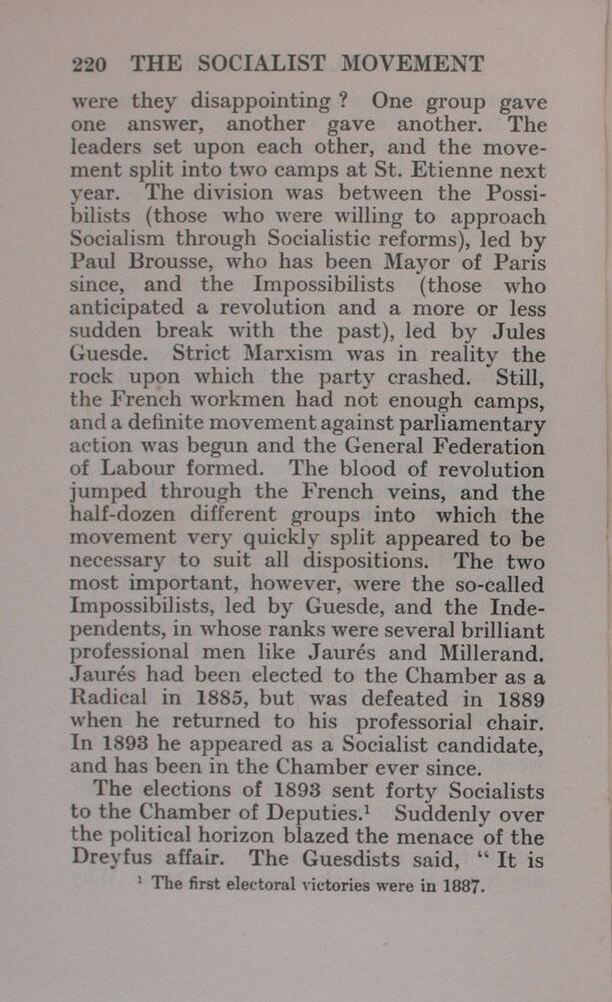were they disappointing? One group gave one answer, another gave another. The leaders set upon each other, and the movement split into two camps at St. Etienne next year. The division was between the Possibilists (those who were willing to approach Socialism through Socialistic reforms), led by Paul Brousse, who has been Mayor of Paris since, and the Impossibilists (those who anticipated a revolution and a more or less sudden break with the past), led by Jules Guesde. Strict Marxism was in reality the rock upon which the party crashed. Still, the French workmen had not enough camps, and a definite movement against parliamentary action was begun and the General Federation of Labour formed. The blood of revolution jumped through the French veins, and the half-dozen different groups into which the movement very quickly split appeared to be necessary to suit all dispositions. The two most important, however, were the so-called Impossibilists, led by Guesde, and the Independents, in whose ranks were several brilliant professional men like Jaurés and Millerand. Jaurés had been elected to the Chamber as a Radical in 1885, but was defeated in 1889 when he returned to his professorial chair. In 1893 he appeared as a Socialist candidate, and has been in the Chamber ever since.
The elections of 1893 sent forty Socialists to the Chamber of Deputies.[1] Suddenly over the political horizon blazed the menace of the Dreyfus affair. The Guesdists said, "It is
- ↑ The first electoral victories were in 1887.
